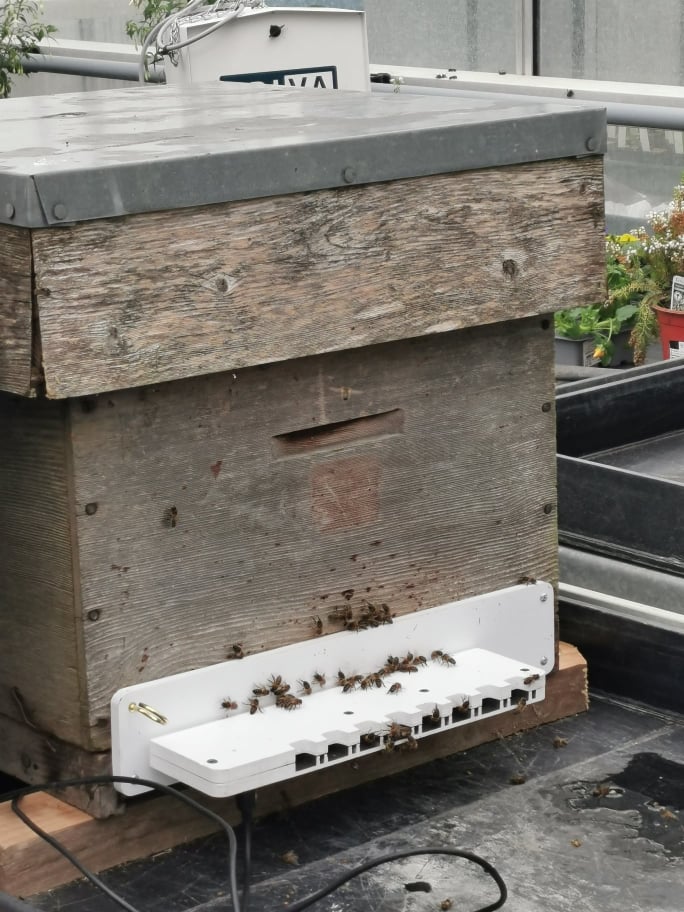SMARTlab Skelligs’ Muinín Catalyst Sustainable STEAM programmes commended at COP28
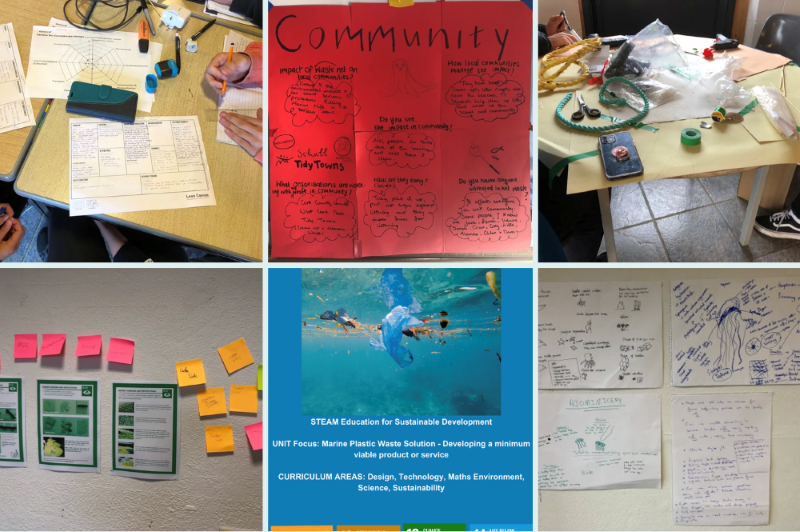
Marine Plastic Waste Design Sprint
In a significant achievement for South Kerry, SMARTlab Skelligs’ Future Focus21c's Muinín Catalyst Sustainable STEAM (MCSS) project has earned commendation at the COP28 summit held in Dubai in late 2023. The SMARTlab Skelligs team, Dr Anita McKeown, Rebecca White and Dr Jessica Garska, all Earth Institute members and within the UCD School of Materials and Mechanical Engineering, are the driving forces behind MCSS, received acclaim for their innovative climate-change education solution, marking it as one of the top 100 outstanding educational projects recognised by the Learning Planet Institute and included in the Institute’s online repository, Teachers for the Planet, which was launched at COP28. Teachers for the Planet serves as a valuable resource for teachers, policymakers, and climate advocates seeking effective solutions to integrate climate-change education into learning curricula.
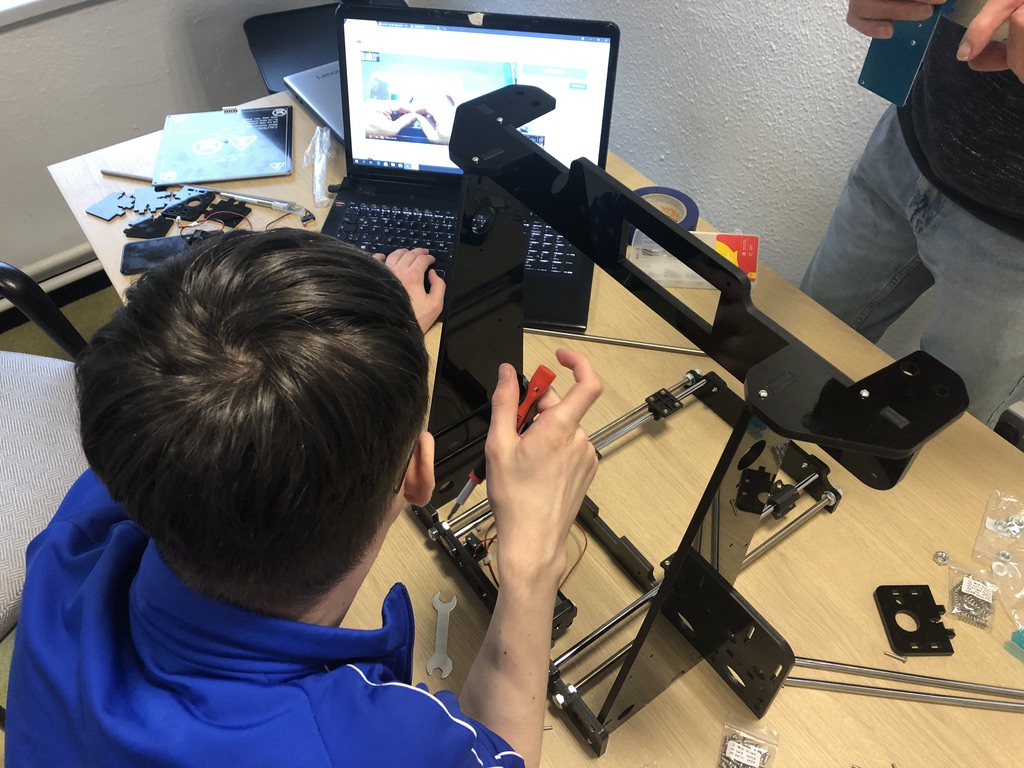
3D Printing build
MCSS provides free sustainable STEAM programmes to Transition Year schools and teachers. MCSS resources integrate the Sustainable Development Goals and the Earth Charter and provide flexible learning and timing. They are evidence-based resources designed by industry, academic and educational experts to develop design thinking skills, twenty-first century skills and incorporate Inclusive Design and UDL into social-emotional and digital eco-literacies. Development and delivery of the MCSS programmes are fully funded by Science Foundation Ireland (SFI) and the Department of Education. Their programmes include their ‘Future of Series’, 5 unique programmes covering Space, Innovation, Food, the Ocean and Fashion as well as standalone TY units: Climate Change Engage, Eco-Anxiety, Ocean literacy, Seeding Sustainability, Problem to Pitch, Engineering for Good.
MCSS stands out as an integrated-literacy approach to climate adaptation, designed collaboratively through research involving over 1,700 young people, teachers, industry professionals, and academic experts. The larger MCSS project with Prof. Lizbeth Goodman, UCD received almost €300,000 in funding, co-funded by the Department of Education and Department of Further and Higher Education, Research, Innovation and Science.
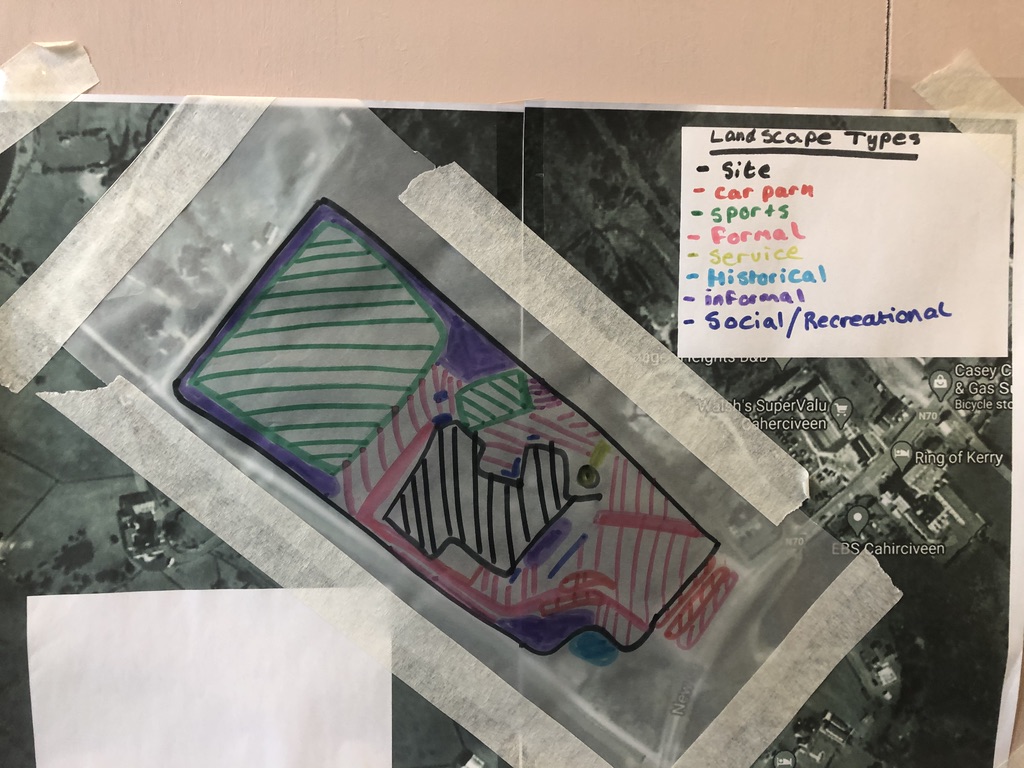
Planning health and wellbeing trail
“We are thrilled and delighted,” said SMARTlab Skellig's Anita McKeown, who moved to Cahersiveen to contribute to research development and building an engaged research ecology. SMARTlab Skelligs, a host research organisation of UCD is dedicated to proving that rural communities can foster international research projects. SMARTlab Skelligs and Future Focus21c works together in partnership with the Inclusive Design Research Centre, SMARTlab, UCD to address the urgent challenges posed by climate change through innovative education solutions. The MCSS project being one example of this collaboration is now poised to significantly contribute to shaping the future of climate-change education.
The MCSS project currently involves sixteen schools to integrate future-oriented skills into Transition Year, part of the Irish senior-cycle curriculum. This aligns with the project's broader goal of tooling up education for the 21st century.
A Paradigm Shift in Education
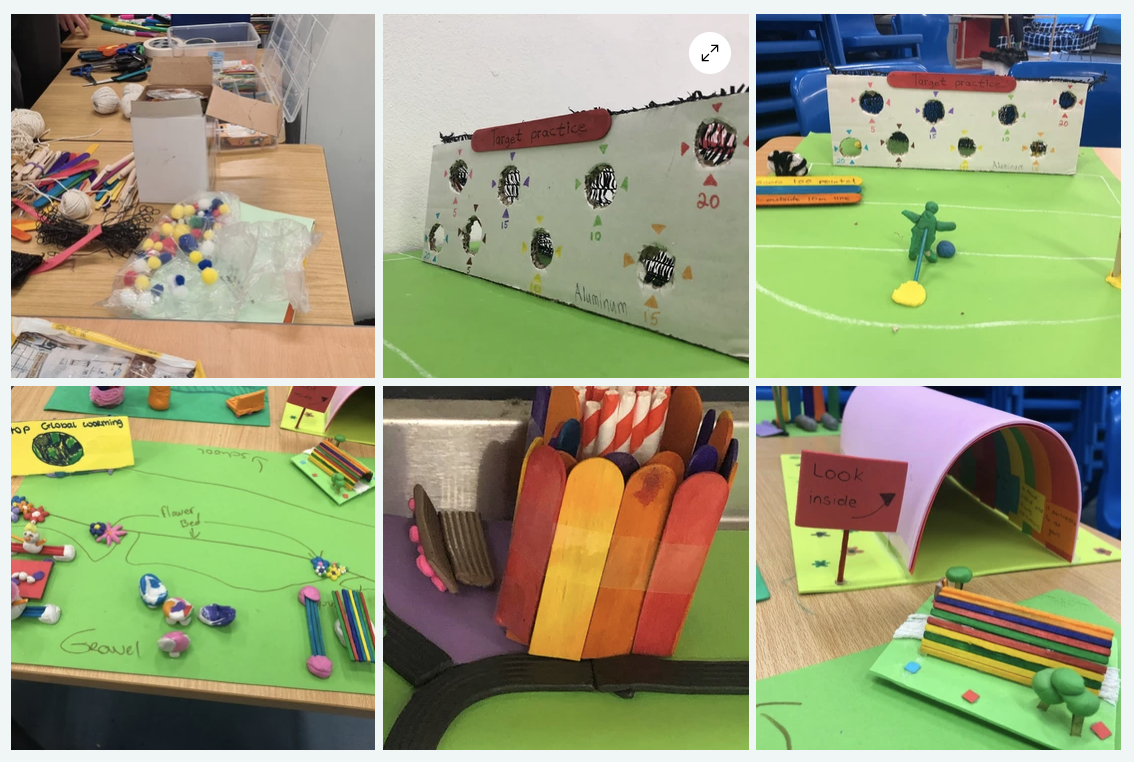
Prototypes Health and Wellbeing trail nodes
The Muinín Catalyst Sustainable STEAM project challenges traditional post-primary schooling systems, introducing a transdisciplinary, STEAM-based pedagogical approach. In an era where systemic challenges demand innovative solutions, educators globally are re-imagining learning for the twenty-first century.
Unlike the structured and subject-based learning prevalent in traditional systems, MCSS advocates for a more connected, relatable, and non-linear approach. Transdisciplinary learning, as encouraged by MCSS, promotes concepts and skills-building across subject areas, fostering a holistic learning experience where students apply knowledge in various contexts.
According to UNESCO, transversal skills such as critical and innovative thinking, interpersonal skills, intrapersonal skills, global citizenship, media and information literacy, and others are increasingly essential for learners to adapt to changes and lead meaningful lives. Add to this their integration of Inclusive Design Approach, the project facilitates differently abled learners to achieve success and reach their potential.
The Role of Arts in Learning and Development
The STEAM (Science, Technology, Engineering, Arts, and Maths) approach embraced by MCSS transcends conventional boundaries, encouraging unorthodox methods and strategies in teaching and learning. Utilising the arts as a fundamental component, STEAM places creativity at the core of learning, envisioning education beyond subject matter and encouraging learners to express and communicate their understanding innovatively.
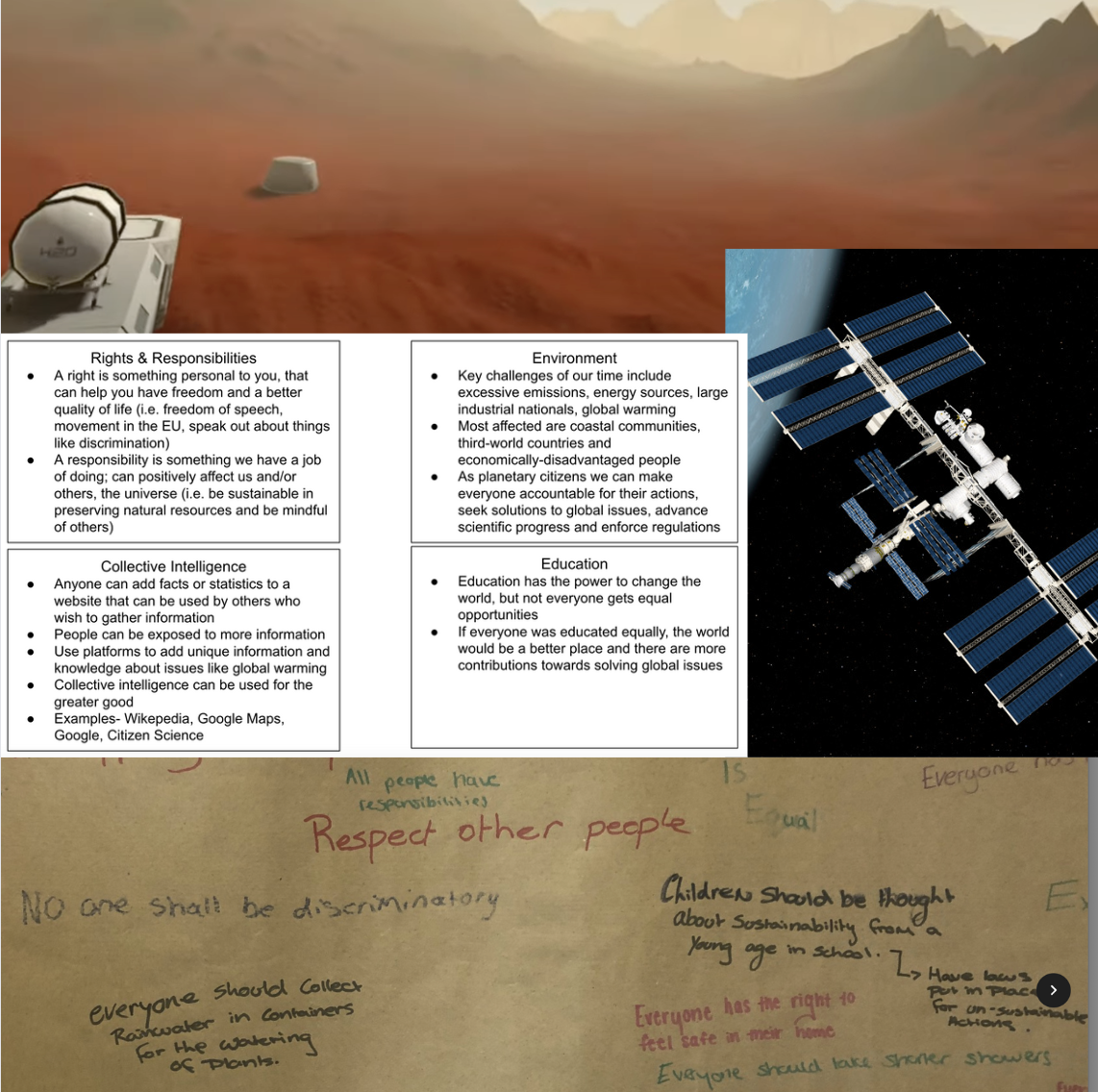
VR project Space Messengers - Planetary Citizenship
STEAM learning is not merely about using the arts to express STEM concepts; it embodies a specific pedagogy that develops transversal skills and competencies. By integrating artistic skills with scientific knowledge, STEAM prepares learners to apply their understanding to real-world challenges.
Transformative Learning Through Placed-Based Education
MCSS aligns with SDG 4 Target 4.7 – to ensure that that all learners acquire the knowledge and skills needed to promote sustainable development by 2030 – by championing an arts/design and culture-led approach to learning. The project aims to produce informed citizens—systemic, critical, and creative thinkers capable of applying knowledge in agile ways that respond appropriately to context.
Place-based learning, a cornerstone of MCSS, allows individuals to experience education in local, real-life scenarios. This approach, grounded in local communities and contexts, equips students with the confidence and competence to effect change, manage risk, and develop eco-socially just and restorative solutions.
As we navigate the complexities of the 21st century, Muinín Catalyst Sustainable STEAM stands as a beacon of transformative education, recognized on the global stage for its commitment to shaping future leaders and citizens capable of meeting the challenges of our interconnected world. The future is now, and MCSS is paving the way for a more resilient, adaptive, and sustainable education system.
Further information
Muinín Catalyst Sustainable STEAM (MCSS) project
Irish Independent article: Kerry project commended at COP28 conference

.jpg)
